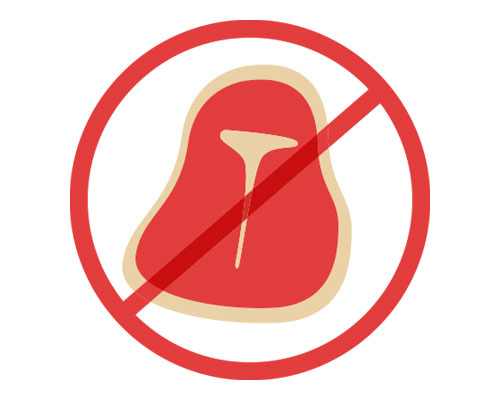
If you’ve ever watched a friend or loved one experience a gout attack, you’ll most likely do anything to avoid the same fate. Aside from the pain, the potential complications and long-term effects of gout (heart disease and joint deformities, for example) are also concerning.1 But can you prevent gout? The answer is complicated.1,2
Gout tends to run in families, so some of us are more likely to develop it simply because our parents or grandparents had it.1 Fortunately for some people, the risk of developing the disease—and the painful gout flares that can come with it—can be reduced with simple lifestyle changes.1,2 So while the deck may appear to be stacked against you from a genetic standpoint, you may still be able to avoid developing this potentially devastating condition.1,2 Read on to learn more about how you may be able to prevent gout.
What causes gout?
The root cause of gout is uric acid.1 When there is too much of it in the bloodstream (a medical condition called hyperuricemia), urate crystals can form around a joint.1-3 Sometimes, these urate crystals trigger the sudden pain, swelling and redness known as a gout attack or gout flare.1,3 Reducing the amount of uric acid level in the body—ideally to a level of 6.0 mg/dL or below—is the most important way to control gout.1
Does family history affect gout risk?
For many years, gout was believed to be a disease of excess—brought on by eating rich foods and consuming a lot of alcohol, particularly beer.1 That’s only partially true, however. Studies show that who our parents are has a much greater impact on our risk of developing gout than what we eat and drink.4-6 In one meta-analysis of the genetics and eating habits of more than 16,000 healthy American adults, the foods most often associated with gout (such as beer, red meat and certain kinds of seafood) accounted for less than 1% of the difference in the study patients’ uric acid levels.4 Genetics, on the other hand, accounted for nearly 24%.4 The results of two recent Japanese and Taiwanese studies further support the connection between genetics and gout.5,6
What can I do to prevent gout?
If gout runs in your family, don’t panic. There are many things you can do to avoid the disease and painful gout flares, including:1-3
Maintain a healthy weight. According to the Gout Education Society, being obese (as defined by having a Body Mass Index, or BMI, of 30 or higher) can increase your risk of developing gout.1 This is because people who are overweight tend to have more uric acid in their bodies than people who are not overweight.3
Eat well. Experts at the Mayo Clinic say consuming certain foods and drinks such as red meat, shellfish, juices and alcoholic beverages can increase the risk of gout.3 Instead, stick with a low-purine, gout-friendly diet—lean protein, low-fat dairy, vegetables, nuts, grains and some fruit.7 Drink plenty of water, too.7
Manage your medical conditions.Your risk of gout may be higher if you have certain other diseases or conditions.1 These include metabolic syndrome, diabetes, heart disease and kidney disease.1,2 (Effective long-term management of these conditions is important regardless of whether or not you are at risk of developing gout.)
How can my doctor help me prevent gout?
So can you prevent gout? That may be up to you. If you suspect you are at risk of developing gout, talk with your doctor about your concerns. He or she can check the uric acid level in your blood and if it’s above normal, recommend medication that can help address your specific needs.1 A urate-lowering therapy (ULT) such as allopurinol can help reduce the amount of uric acid in the bloodstream, addressing the root cause of gout.8 A colchicine product such as Mitigare® (colchicine) 0.6mg Capsules or Generic Colchicine 0.6mg Capsules can help prevent gout flares.8,9 If you suspect you have suffered a gout flare, contact your doctor right away. Gout is a chronic disease that must be taken seriously.1 Despite its potential severity, only about one in 10 people who suffer with gout receive the ongoing treatment they need.10 Gout is associated with other serious health issues, so an accurate diagnosis and regular, ongoing care are essential to effective long-term management.1,10
Mitigare® is a registered trademark of Hikma Pharmaceuticals USA Inc.
Colchicine 0.6 mg capsules are contraindicated in patients with renal or hepatic impairment who are currently prescribed drugs that inhibit both P-gp and CYP3A4. Combining these dual inhibitors with colchicine in patients with renal or hepatic impairment has resulted in life-threatening or fatal colchicine toxicity. Patients with both renal and hepatic impairment should not be given Mitigare®.
Fatal overdoses have been reported with colchicine in adults and children. Keep Mitigare® out of the reach of children.
Blood dyscrasias such as myelosuppression, leukopenia, granulocytopenia, thrombocytopenia and aplastic anemia have been reported with colchicine used in therapeutic doses.
Monitor for toxicity and, if present, consider temporary interruption or discontinuation of colchicine.
Drug interaction with dual P-gp and CYP3A4 inhibitors: Co-administration of colchicine with dual P-gp and CYP3A4 inhibitors has resulted in life-threatening interactions and death.
Neuromuscular toxicity and rhabdomyolysis may occur with chronic treatment with colchicine in therapeutic doses, especially in combination with other drugs known to cause this effect. Patients with impaired renal function and elderly patients (including those with normal renal and hepatic function) are at increased risk. Consider temporary interruption or discontinuation of Mitigare®.
The most commonly reported adverse reactions with colchicine are gastrointestinal symptoms, including diarrhea, nausea, vomiting and abdominal pain.
Please see the full Prescribing Information and Medication Guide for Mitigare® for complete product details.
NOTE: This article was not written by a medical professional and is not intended to substitute for the guidance of a physician. These are not Hikma’s recommendations for gout flare prevention, but rather facts and data collected from various reliable medical sources. For a full list of resources and their attributing links, see below.
